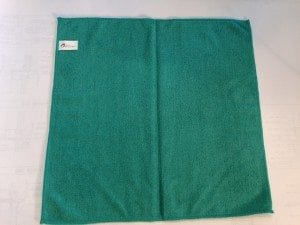 In hospitals, cleaning is paramount: hygiene is a priority in all departments, from the emergency room to the elevators. With so many sick people coming and going, and so many germs in close quarters, the risk of spreading illnesses is higher than in other locations – and, of course, more potentially harmful.
In hospitals, cleaning is paramount: hygiene is a priority in all departments, from the emergency room to the elevators. With so many sick people coming and going, and so many germs in close quarters, the risk of spreading illnesses is higher than in other locations – and, of course, more potentially harmful.
Even the common cold can prove a serious danger to those experiencing severe health problems – the lowered immune system is more vulnerable, making even the tamest bug a matter of life and death.
Janitorial staff in hospitals are constantly busy, keeping the multiple areas in the cleanest condition possible – but this can be an expensive, time-consuming task. Microfiber makes keeping surfaces clean easier than ever, with numerous benefits over standard cloths.
What Makes Microfiber More Effective?
Microfiber provides a more effective clean because the fibers themselves can attach to the tiniest particles of dirt, whereas standard cloth-based cleaning products simply brush against them. This means there is no need for a chemical-based detergent to provide a powerful clean: millions of fibers sweep dirt away, using enough force to loosen all kinds of contaminants with just a tiny helping of soapy water.
Microfiber should be washed on a regular basis (on their own, though, as their powerful fibers will pull lint and dirt from other items), and can be cleaned up to a thousand times without losing their effectiveness.
Using a Microfiber Mop for a Powerful Clean
Janitors will find using microfiber mops to clean surfaces in their hospital easier than a cotton-loop mop due to their lighter weight. As microfiber mops require less water, they leave less of it on surfaces, reducing the risk of slippage that standard mops do. This leads to less chance of patients, visitors, or staff having accidents which potentially lead to expensive compensation claims.
Using a microfiber mop or a microfiber cloth to clean hospitals is becoming more popular, but many hospital staff are still unaware of how much more effective this material can be over standard types. Time is a valuable commodity among janitorial staff in the busiest hospitals with high turnover of patients, and so any change that reduces the time needed to perform certain tasks without decreasing their efficiency should be embraced.

Comments are closed